Religion-based political parties or religious parties are a phenomenon commonly found in various countries around the world. This party is not only entrenched in countries that formalize certain religions and cultures as state identities, such as Israel, Pakistan and Afghanistan, but also in secular countries such as Germany and the Netherlands, or multicultural countries such as Indonesia.
Research by Nancy L Rosenblum of Harvard University on religious and ethnic based parties in Europe and Turkey shows that the emergence of religious and ethnic based parties into the political arena contributed to the consolidation of democratic regimes. The necessity of competition in elections has changed the character of religious and ethnic groups from opposing the government and sectarians, to becoming supporters of democracy and recognize pluralism.
In Germany, for example, the Christian Democratic Union (CDU), which carries the color of conservative Christian culture and politics, is slowly adapting to the current diversity in Germany. Then in Turkey, the Adalet ve Kalkınma Partisi (AKP) or the Justice and Development Party began to reduce religious-based policies. The dominant religion-based parties have, in fact, expanded their constituencies beyond their religious supporters and brought new groups that have been politically marginalized into democratic politics.
“The necessity of competition, and not liberalization and theological / ideological accommodation, is the force for political integration. Muslim Democrats on the streets are looking for votes and in the process changing Islam’s relationship with politics. Even in Iraq, which does not meet the requirements of party democracy, in the 2005 elections, Ayatollah Shia, Ali Sistani – a proponent of a unified Shi’a candidate list – reminded women of their religious obligation to vote even if their husbands forbade them. The necessity of electoral victory, not religious reform, forced them.” (Rosenblum 2007, page 58).
In another phenomenon, non-religious parties play the religion keyword for electoral interests. Research conducted by Leon van den Broeke and Katharina Kunter shows us that right-wing conservative parties in the Netherlands, namely Lijst Pim Fortuyn (LPF), Partij voor de Vrijheid (PVV), and Forum voor Democratie (FvD), albeit secular, however, it uses Christian religious and cultural sentiments to garner support. These parties frame political narratives with a stance against Islam. The same thing was found in the Alternative for Germany (AfD) party. The dominant cultural identity of Christianity in German society is played out against the threat of Islam, something populist in both countries.
In the case of the parties mentioned in the Netherlands and Germany, certain anti-religious or racial sentiments were also carried by the secular-nationalist party. However, in accordance with Brubaker’s thesis, Leon and Katharina also found that the populist movement emphasized Christianity as a cultural identity and civilization, not religion (Brubaker 2017).
In Pakistan and Israel, religious politics play a role in nation building. Without Islam, there would be no Pakistani state. Without Jews, there would be no state of Israel. Not surprisingly, religious authorities and actors in these two countries play an important role in government sectors. With these characteristics, secular political parties will also use religious symbolism in the political arena of the state.
Bharatiya Jannati Party (BJP), the largest religious-based political party in the world
The BJP or the Indian People’s Party has a membership of 180 million. This makes the BJP, the Hindu nationalist party, the largest religion-based party in the world.
Fadhli Robbi, Lecturer in International Relations at the Islamic University of Indonesia (UII) explained that the BJP adheres to the Hindutva ideology, which is an ideology that mainstreams Hindu identity in efforts to build the nation in India. There are three main Hindutva teachings, namely rashtra or attachment to one and single homeland; teak or attachment based on biological descent from Vedic era ancestors; and sanskriti or attachment to Hinduism’s culture and civilization. A Hindu must fulfill these three elements.
Politically, Hindutva was born to fight against two things, namely colonialism and Gandhi’s Islam-Hindu harmonization politics. The Hindutva movement coincided with the Hindu revivalism movement which aimed to unite Hindus and strengthen inter-caste solidarity in Hindu society to fight the waves of Islamization and Christianization.
“So, Hindutva was not born from pure Hindu teachings, but was born with a political context at that time that wanted to fight colonialism and Gandhi’s politics, who wanted to build a harmonious relationship between Hindus and Muslims at that time,” said Fadhli in the discussion “Religious Politics? Why People Supported? ”, Friday (4/30).
The BJP itself is the political wing of the Rashtriya Swayamsevak Sangh (RSS), a Hindu supremacy advocacy movement against minority-friendly policies. Many members of the RSS are in power in the Indian state.
“This RSS is huge. It has 1.8 million active cadres. There are 40 thousand branches. Led by a person, the term is like the high priest, Sarsanghchalak,” said Fadhli.
The BJP won the 2014 and 2019 elections thanks to the figure of Narendra Modi, who was previously considered successful as the Grand Minister of Gujarat. The BJP also did not use Hindutva’s narrative during the campaign period, thus attracting a larger constituency. The BJP campaign is also supported by a large and loyal grassroots mass base with a patronage strategy. In fact, in 2004, Shah Imam Jama Masjid, Syed Ahmed Bukhari invited Muslim voters to vote for the BJP because they were disappointed with the status quo that did not guarantee the economic welfare of the Muslim community.
In fact, however, the strengthening of Hindu identity under the religion-based BJP party also reduces state service and recognition of Muslims and Christians. India under the leadership of the BJP has issued a policy of converting mosques in the Mughal era into Hindu temples, changing the autonomous status of Jammu and Kashmir to the Union Territory, and removing Muslims who have lived for a long time in India from their citizenship status.
The case of India reflects one thing, namely that the strong identity of the majority in a country, although it is a factor of building the nation and the state and maintaining social control, has the character of overriding the rights of minorities who are religiously, racially and culturally different from the majority. It is at this point that religious populism runs counter to protection of minorities. The rise of the BJP has also used populist economic populism to shine through in fierce competition against thousands of political parties.
Religious Political Parties in other countries
Rachid Ghannouchi’s name appears on the themes of Islam, Islamic politics and democracy. After his exile in London, the Ben Ali regime thinker and opposition activist returned to Tunisia in 2011 and led the An-Nahdhah movement, a movement that brought the spirit of change to Tunisian politics.
Although An-Nahdhah was built by former Jamaah al Islamiyah activists who approved of Islamism, An-Nahdhah’s political stance was progressive. Ghannouchi, who was known as a true democrat, brought An-Nahdhah to an accommodative attitude towards the opposition and groups that were against them. This party also takes sides with, equitable welfare, fulfillment of women’s rights, gender equality, political pluralism and freedom of opinion. An-Nahdhah is a rare example of a religion-based political party whose actions show that religious identity is not a barrier to the implementation of inclusive progressive politics.
Moving to Germany, CDU is a Christian-based political party that supports a free market economy. Unlike the Christian Social Union (CSU) Party, the CDU under Angela Merkel took a more moderate step. Merkel often encourages tolerance and coexistence.
“Before being led by Merkel, the CDU was more conservative. Merkel invited the CDU to be more in the middle. The values are tolerance and coexistence,” said Slamet Riyadi University’s Lecturer in International Relations, Ganjar Widhiyoga at the same discussion.
Unfortunately, the right populism that is currently strengthening in Germany with the issue of anti-Muslim refugees has made the CDU get criticism from some constituents. The CDU allows Muslim refugees to enter Germany.
“There are CDU followers who are disappointed because CDU allows Muslim refugees to enter Germany. That’s why they prefer SPD (Social Democratic Party),” said Slamet.
In Indonesia, religious-based political parties have existed since the beginning of Independence. After the Reformation, there were at least six religious-based parties, namely Partai Persatuan Pembangunan (PPP), Partai Amanat Nasional (PAN), Partai Kebangkitan Bangsa (PKB), Partai Keadilan Sejahtera (PKS), Partai Damai Sejahtera (PDS), and Partai Bulan Bintang (PBB). Neither of these parties has called for hostility to religious minorities. However, the desire to gain the moral sympathy of the majority makes vulnerable groups such as transgender people still victims of bullying in election campaigns.
There are various characteristics of the phenomenon of religious-based political parties in various countries. There are parties that deliberately attract majority support with narratives that exclude and discriminate against minorities, but there are also parties that carry an inclusive political platform.
From Rosenblum’s article, religious-based political parties that do not have large community support are often ignored because their small scale is not considered a threat. However, religious-based parties with large support are often seen as a threat for various reasons, such as that these parties are anti-democratic, create identity politics that are detrimental to minorities, and are discriminatory.
These reasons must be evaluated critically, because discrimination and hostility towards minorities is negative, but depriving them of the right to form political parties is also a non-democratic act.



























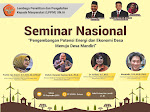














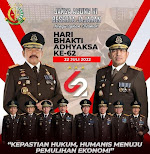






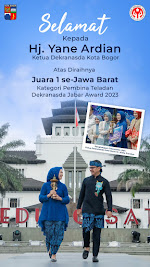


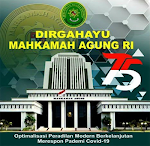












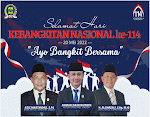








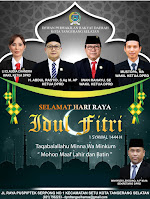











0 comments:
Post a Comment